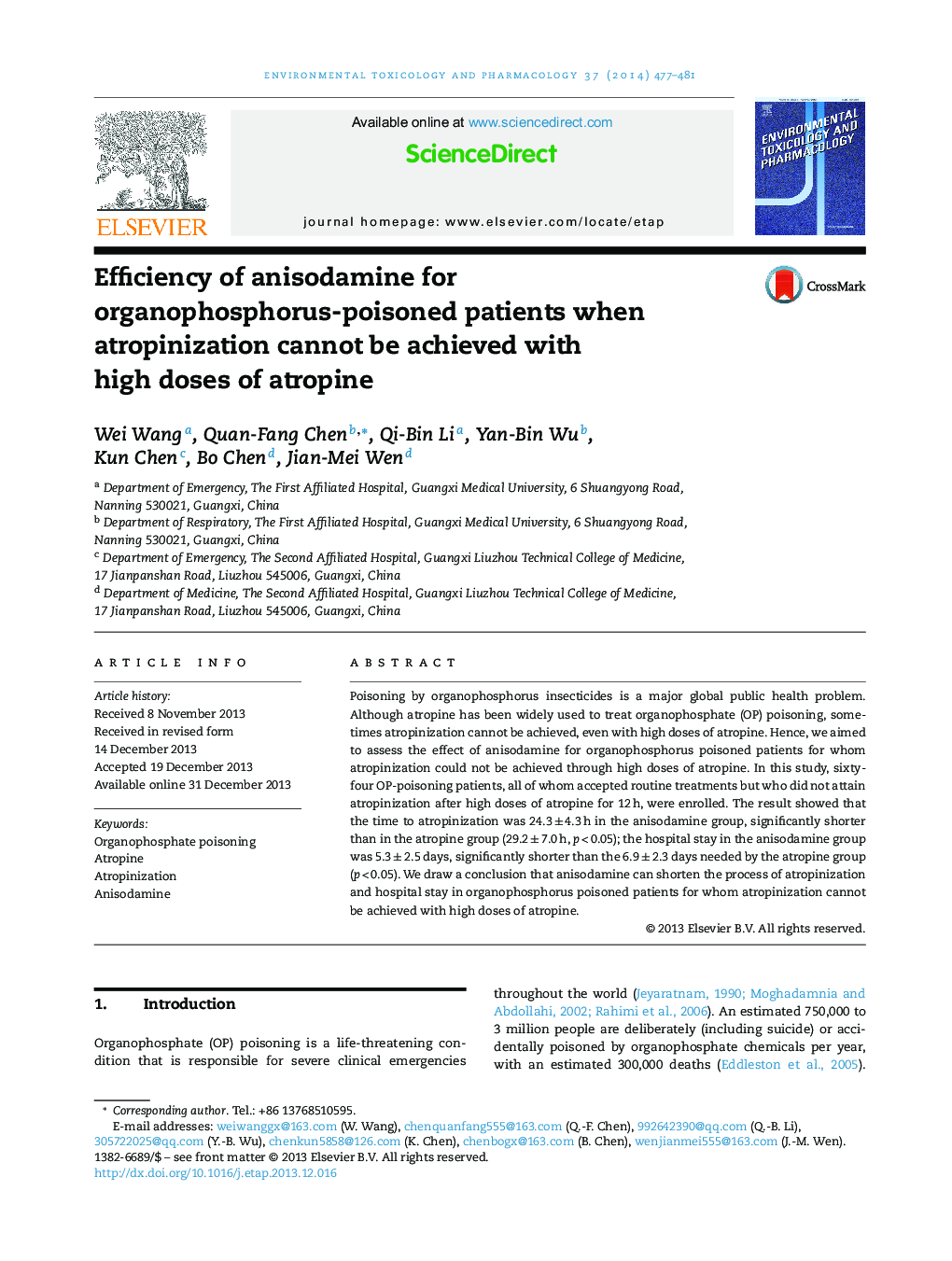| Article ID | Journal | Published Year | Pages | File Type |
|---|---|---|---|---|
| 2582986 | Environmental Toxicology and Pharmacology | 2014 | 5 Pages |
Poisoning by organophosphorus insecticides is a major global public health problem. Although atropine has been widely used to treat organophosphate (OP) poisoning, sometimes atropinization cannot be achieved, even with high doses of atropine. Hence, we aimed to assess the effect of anisodamine for organophosphorus poisoned patients for whom atropinization could not be achieved through high doses of atropine. In this study, sixty-four OP-poisoning patients, all of whom accepted routine treatments but who did not attain atropinization after high doses of atropine for 12 h, were enrolled. The result showed that the time to atropinization was 24.3 ± 4.3 h in the anisodamine group, significantly shorter than in the atropine group (29.2 ± 7.0 h, p < 0.05); the hospital stay in the anisodamine group was 5.3 ± 2.5 days, significantly shorter than the 6.9 ± 2.3 days needed by the atropine group (p < 0.05). We draw a conclusion that anisodamine can shorten the process of atropinization and hospital stay in organophosphorus poisoned patients for whom atropinization cannot be achieved with high doses of atropine.
